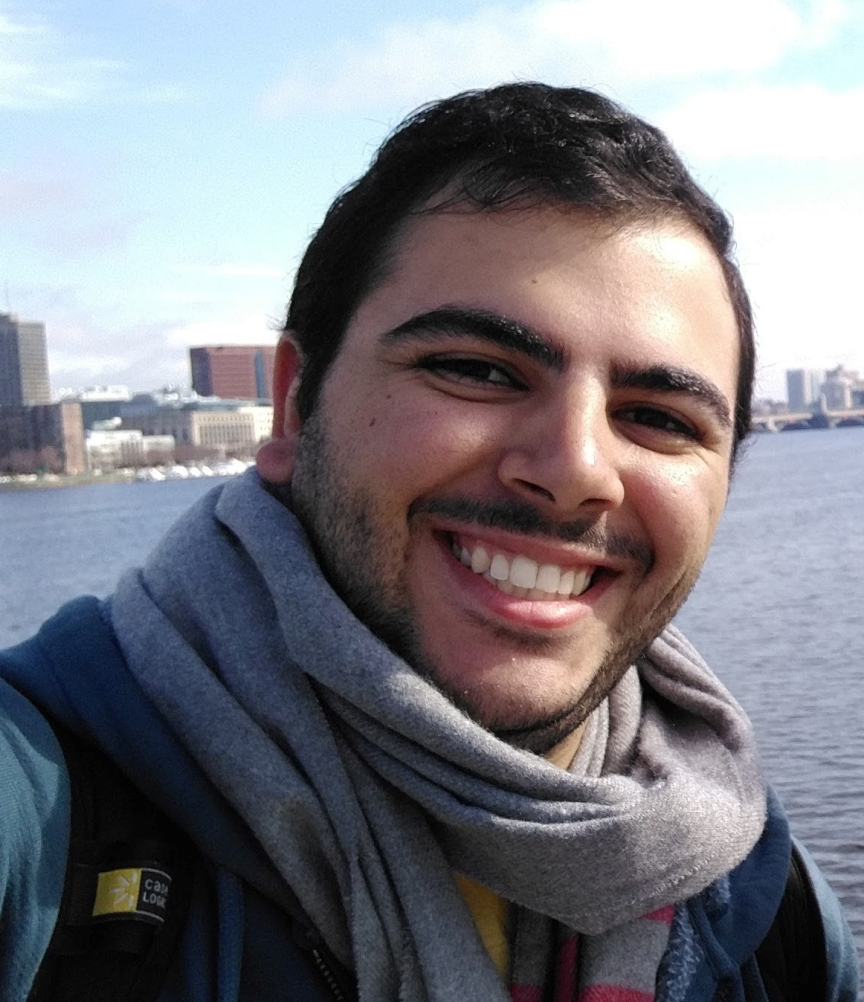Rutgers Senior Flourishes After Leaving Egypt During ‘Arab Spring’
Chris Wakim hopes to pursue a doctorate in bioinformatics

'It was pretty unsafe in Egypt, and I didn't have any future over there in terms of a career. We were in the middle of a revolution and a politically unstable country. You're never sure of the outcome, so you're always going toward the safest and most reliable future.'– Chris Wakim
When Chris Wakim finished high school in Egypt six years ago, his parents took him and his brother to the United States as a graduation gift.
Egypt was in the throes of the pro-democracy “Arab Spring” back then, so the family made a difficult decision. They left everything behind and remained in the USA after visiting Wakim’s aunt in New Jersey.
“It was pretty unsafe in Egypt, and I didn’t have any future over there in terms of a career,” said Wakim, a senior at Rutgers’ School of Environmental and Biological Sciences. “We were in the middle of a revolution and a politically unstable country. You’re never sure of the outcome, so you’re always going toward the safest and most reliable future.”
Wakim’s odyssey took him from Alexandria, Egypt, to Bergen Community College to Rutgers University-New Brunswick, where he will graduate next month with a double major in microbiology and the biotechnology concentration in bioinformatics.
“It’s been quite a journey,” said Wakim, 24, who lives with his family in Somerset, New Jersey. “I knew what I wanted, so Rutgers was the only university I applied to. As I’m entering the world, what I love is there are so many opportunities. In Egypt, opportunities are limited. I want to do everything, so choosing is hard.”
Wakim, who was born in historic Alexandria on the Mediterranean Sea, is fluent in English, French and Arabic and knows some Chinese and Japanese. He has a long record of volunteerism, service and participation in the arts. He joined MEJ, which resembles the Boy Scouts, when he was in elementary school. When he was about 12, he organized a school group that helped connect fellow students with others who had Down syndrome.
He also was an actor, photographer and journalist at the International Festival of Francophone theater in Egypt, which stages plays in French, and sang in the El Refak Choir in his Christian church.
In high school, Wakim faced a dilemma: whether to pursue graphic design or science in college. He loved drawing, but also he loved computers, genetics and biology. He applied to study bioinformatics at Luminy, a university in France, and was accepted, but then in 2011 his family left Egypt.
Soon after arriving in the U.S., Wakim enrolled in Bergen Community College, where he earned an associate’s degree in science, natural sciences and math in little more than a year. He also worked two jobs and covered virtually all of his expenses.
“Once I entered Rutgers in 2013, I felt like I need to be involved in research because it was calling me,” he said.
So he worked in Professor Joachim Messing’s lab at the Waksman Institute of Microbiology and at the Center for Integrative Proteomics Research. He was a research assistant at the Lighthouse Guild in New York City, which helps blind and visually impaired people. He was an Aresty Undergraduate Research Fellow in Professor Debashish Bhattacharya’s Lab in the Department of Ecology, Evolution and Natural Resources.
As a George H. Cook scholar, Wakim’s thesis focused on botanical compounds in neem trees – found in tropical and semi-tropical areas – that may inhibit the HIV replication pathway.
In addition to his classes and research, Wakim, a licensed pharmacy technician, served as a member of the Rutgers University Senate and the Governing Council at the School of Environmental and Biological Sciences. He also served in the SEBS Pre-Medical/Pre-Dental Society and was the only undergraduate on the Rutgers commencement committee, among other activities.
“I love to be involved as much as I can,” he said. “I love Rutgers because it offers so many opportunities.”
Wakim, who received his U.S. green card (permanent resident card) in 2012, wants to become a U.S. citizen and will retain his Egyptian citizenship. He hopes to pursue a doctorate bioinformatics.
“The process that led to my green card was long and there was a lot of uncertainty along the way,” he said. “Receiving it meant that I did not have to worry anymore and that I had the opportunity to start my new life in the U.S., the land where if you work hard you get rewarded.”
For media inquiries, please contact science communicator Todd B. Bates at tbates@ucm.rutgers.edu or 848-932-0550.